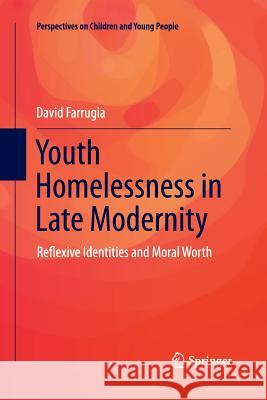Youth Homelessness in Late Modernity: Reflexive Identities and Moral Worth » książka
topmenu
Youth Homelessness in Late Modernity: Reflexive Identities and Moral Worth
ISBN-13: 9789811012785 / Angielski / Miękka / 2016 / 172 str.
Kategorie:
Kategorie BISAC:
Wydawca:
Springer
Seria wydawnicza:
Język:
Angielski
ISBN-13:
9789811012785
Rok wydania:
2016
Wydanie:
Softcover Repri
Ilość stron:
172
Waga:
0.27 kg
Wymiary:
23.39 x 15.6 x 0.99
Oprawa:
Miękka
Wolumenów:
01











